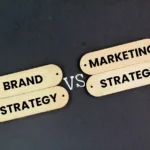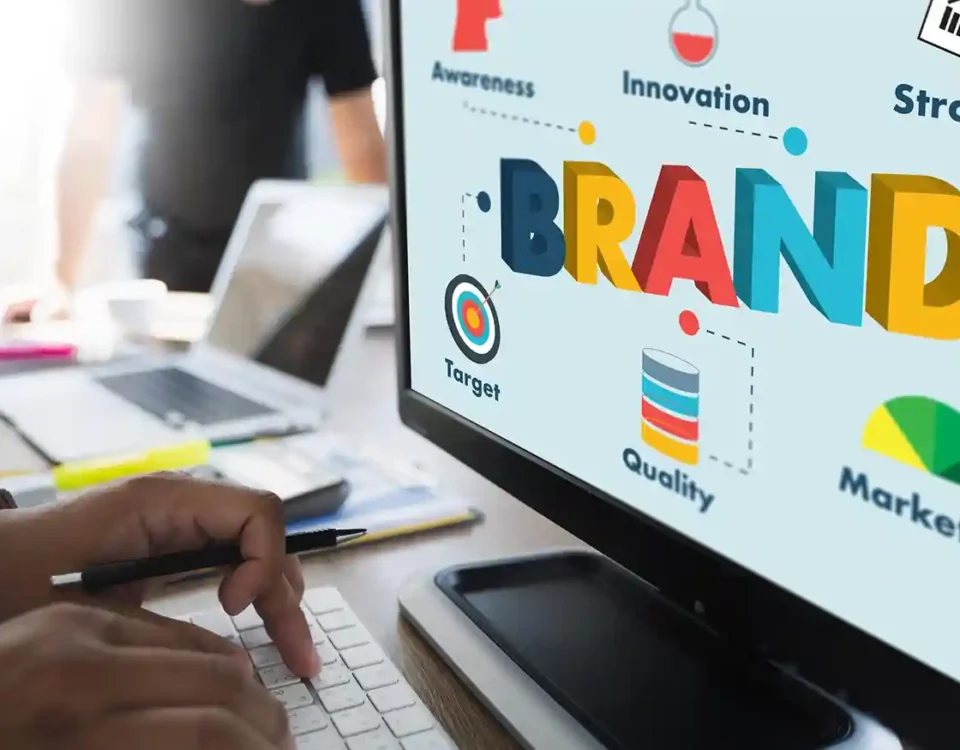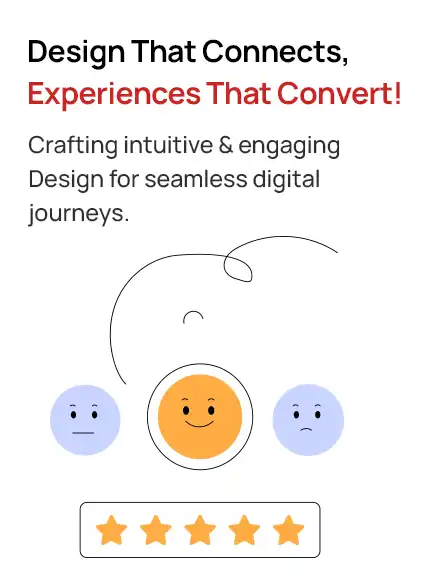
Brand Strategy vs. Marketing Strategy: Why the Difference Matters
June 21, 2025
Branding for Tech Brand: How Startups Can Stand Out and Scale Fast
June 26, 2025
Brand Strategy vs. Marketing Strategy: Why the Difference Matters
June 21, 2025
Branding for Tech Brand: How Startups Can Stand Out and Scale Fast
June 26, 2025The Complete Guide to Branding for Manufacturing: Tips, Strategies, and Why It Matters
June 24, 2025
- 18 min to Read
Introduction
Most manufacturing companies focus heavily on production volume, product quality, and operational efficiency—and rightly so. But one critical growth factor is often overlooked: branding.
In a time when 94% of B2B buyers conduct online research before contacting a supplier, and first impressions are made digitally, manufacturing branding is no longer optional—it’s a strategic necessity.
Buyers today aren't just comparing specs and price tags—they’re influenced by how much they trust a company, how professional it appears, and how connected they feel to the brand’s values and reputation.
That’s why a Manufacturing Branding Agency goes far beyond creating just a nice logo. It’s about shaping how your company is perceived, building long-term trust, and positioning your business to stand out in an increasingly competitive market.
In This Guide, You’ll Learn:
- Why branding is important in manufacturing
- How it differs from consumer branding
- Proven strategies that work for industrial businesses
- Real-life examples that show branding's direct impact on growth
Why Branding Is Important in Manufacturing
For decades, manufacturers only relied on having better technology, word of mouth, and long-term relationships. But the world of business has changed. People are doing more of their own research online and comparing suppliers not only on specs but also on their credibility, professionalism, and brand presence.
Key Reasons Why Branding Matters:
- Trust and Credibility: A strong brand shows that you are consistent, high-quality, and stable—key for procurement teams seeking long-term partners.
- Differentiation: In a crowded market, your brand is what makes you stand out.
- Perceived Value: Companies with strong brands can often charge more and negotiate more effectively.
- Employee Pride and Loyalty: A clear brand identity makes your employees proud and loyal, helping with hiring and retention.
What Makes Branding in Manufacturing Different?
Branding in manufacturing isn’t like branding in retail or tech. It’s more about trust, clarity, and expertise than emotional appeal.
What Sets It Apart:
- Extended Sales Cycles: B2B manufacturing purchases often involve multiple decision-makers and detailed evaluations, which means the sales process can take several months from first contact to contract.
- Technical Depth: Your branding should reflect technical expertise—not just aesthetics.
- Diverse Decision-Makers: Your brand must connect with a wide range of stakeholders—including engineers, procurement teams, end-users, and regulatory authorities—each with different priorities and expectations.
That’s why branding in manufacturing must balance professionalism, clarity, and uniqueness.
Core Branding Services That Help Manufacturing Grow
Manufacturers need more than just a logo to make a strong and lasting impression. They need a complete branding ecosystem. Here are five essential services that build strong manufacturing branding foundations:
1. Branding Strategy: Setting Up Your Manufacturing Business for the Future
Your branding strategy defines how the market perceives you and why you’re the right choice. It aligns your internal values with external messaging to support clarity, consistency, and long-term growth.
Why it's important:
- Clarifies your value in a crowded market
- Supports consistent communication between sales and marketing
- Guides choices in product development and service delivery
What it includes:
Mission, values, target customers, competitive positioning, messaging, and tone of voice.
Example:
A steel fabricator repositioned from “custom fabricator” to “structural partners for energy infrastructure,” immediately attracting large EPC clients.
2. Brand Identity: Building Recognition and Professional Credibility
Your visual and verbal identity shapes your first impression. It communicates trust, experience, and stability to prospective partners.
Why it's important:
- Ensures consistency across website, packaging, signage, and documents
- Instills trust instantly, especially during vendor selection
- Reinforces your business’s values and personality
What it includes:
Logo, typography, color palette, iconography, and visual rules for digital and print.
Example:
A tool manufacturer updated its decades-old logo and colors. The redesign made them look modern and helped them expand to international distributors.
3. Custom Website Design & Development: Your Digital Showroom
Your website often serves as the first touchpoint for potential clients, shaping their initial impression of your brand's credibility and professionalism.
Why it matters:
- 70%+ of B2B buyers research online before contacting a supplier
- A well-designed website builds trust globally
- Helps you rank better on search engines
What it includes:
Responsive design, product/service pages, downloadable datasheets, case studies, and inquiry forms.
Example:
A precision parts manufacturer doubled inquiries after launching a mobile-friendly site with a product configurator and client testimonials.
4. Social Media Marketing: Building Brand Recall & Thought Leadership
Social media isn’t just for consumer brands. Manufacturers can use it to engage stakeholders, show thought leadership, and humanize their business.
Why it's important:
- Builds credibility and authority
- Shares project success, behind-the-scenes content, and CSR efforts
- Connects directly with OEMs, engineers, and decision-makers
What it includes:
LinkedIn/YouTube presence, regular content planning, storytelling, and targeted paid campaigns.
Example:
An industrial valve company began sharing install videos on LinkedIn and tripled demo requests in 6 months.
5. SEO: Making Sure Buyers Can Find You
If your audience can’t find you online, your branding efforts won’t matter. SEO makes sure your business ranks on search engines when buyers are actively looking.
Why it's important:
- Builds credibility and authority
- Shares project success, behind-the-scenes content, and CSR efforts
- Connects directly with OEMs, engineers, and decision-makers
What it includes:
Technical SEO, on-page optimization, keyword targeting, blogging, and backlinks.
Example:
A packaging manufacturer ranked on page 1 for “custom FMCG packaging India” and began receiving consistent inquiries from new markets.
Important Parts of a Strong Manufacturing Brand
1. Clear Positioning Statement
Clearly articulate what your company offers, who your ideal customers are, and what sets you apart from competitors.Example: "Precision Components for Aerospace That Meet Global Quality Standards."
2. Consistent Visual Identity
Logo, colors, and design should reflect professionalism and clarity.Example: A German machine manufacturer rebranded with an eco-forward logo to align with sustainable product lines.
3. Branded Website & Sales Materials
Your website and documents must reflect your brand clearly and consistently.Example: A packaging firm revamped its site and visual content, resulting in a 40% increase in qualified leads.
4. Tone of Voice
Every email, post, or catalog should sound confident, knowledgeable, and on-brand.Ways to Make Your Manufacturing Brand Strong
1. Do an Internal Brand Discovery Interview leadership, sales, and ops to uncover your true strengths and brand promise.
2. Know Customer Pain Points Tailor your messaging to solve specific industry problems—like reliability or compliance.
3. Invest in Professional Design High-quality visuals directly affect buyer perception.
4. Ensure Brand Consistency Maintain uniform branding across digital and physical touchpoints.
5. Showcase Partnerships & Certifications Certifications and affiliations add trust and industry authority to your brand.
Common Branding Mistakes Manufacturers Make
- Using outdated logos/websites that misrepresent your current scale
- Generic messaging like “quality and service”
- Lack of internal brand alignment
- Failing to tell your story—your history, evolution, and mission matter
How to Know if Your Manufacturing Brand Is Working
- Are customers citing your brand or website as the reason they reached out?
- Do your salespeople feel confident using your brand materials?
- Are you attracting the right talent and clients?
Conclusion: Why Manufacturing Branding Deserves Your Attention
Manufacturers are known for precision, quality, and consistency—but that’s not always reflected in how they present themselves. That’s where manufacturing branding makes a real difference. It’s not just about design—it’s about building trust, standing out in a competitive market, and communicating the value behind your work.
A strong brand helps you win better projects, attract the right partners, and position your business for long-term growth. If your products speak for themselves, your brand should too.
At Upclues, we help manufacturers turn their expertise into impactful brands—through strategy, identity, websites, and digital visibility that truly reflect who you are and what you deliver.
Brand or Marketing? Know the Difference
Unpack the critical differences between brand and marketing strategies





